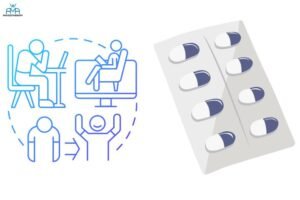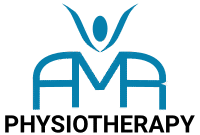The Best Exercises for Depression
Depression is a global concern, affecting millions and often manifesting in ways that impact daily life. While medications and therapy are widely used, exercise has emerged as a powerful, side-effect-free alternative—or complement—to traditional treatments. A groundbreaking study from February 2024 has provided new insights into how various exercises compare to medications and therapy and even identified the most effective options.
Let’s dive into the key findings and what they mean for mental health and depression treatment.

Why Exercise for Depression?
Exercise has long been linked to improved mental health. It not only reduces symptoms of depression but also offers additional benefits like enhanced physical health, better sleep, and increased energy levels. Unlike medications, which may have unwanted side effects, exercise only adds positive effects to the mix.
How Exercise Compares to Medications and Therapy
The study reviewed randomized controlled trials involving over 14,000 participants, making it one of the most robust investigations into this topic. Here’s a breakdown of how exercise stacks up against other treatments:
- SSRIs (Selective Serotonin Reuptake Inhibitors): While commonly prescribed, these medications showed mixed results. A significant portion of participants reported minimal improvement, with some experiencing worsened symptoms.
- Cognitive Behavioral Therapy (CBT): CBT remains highly effective, helping individuals understand and manage the relationship between thoughts, emotions, and behaviors.
Interestingly, many forms of exercise outperformed SSRIs and were comparable to CBT in effectiveness.

The Best Exercises for Depression
The study highlighted several exercises and their effects on depression symptoms. Here’s how they rank:
1. Walking or Jogging
This low-barrier activity had the highest effectiveness. Walking or jogging often involves spending time outdoors, which amplifies its benefits. Exposure to nature can reduce stress and improve overall well-being.
2. Strength Training
Strength training came out surprisingly strong, especially among women and younger individuals. The empowerment from building physical strength might contribute to this effect.
3. Yoga
Yoga was particularly effective for men and older adults. Its combination of physical movement, mindfulness, and breathwork makes it a well-rounded practice for mental health.
4. Dance
Though not included in the main infographic due to limited studies, dance showed the most significant benefits overall. Dance combines physical activity with social interaction, making it a double win for mental health. Building connections with others through dance may explain its outsized impact.
Why Intensity Matters
The study found that the intensity of the exercise plays a critical role. The more intense the exercise, the greater the positive effects on depression symptoms. However, it’s essential to balance intensity with enjoyment to ensure consistency.
Customizing Exercise for Individual Needs
Different exercises may work better for different groups:
- Women and younger people: Strength training appears particularly beneficial.
- Men and older adults: Yoga offers unique advantages.
Ultimately, the best exercise is the one you enjoy and will stick with.
Why Social Connection Matters
The social aspect of exercise, such as dancing or group activities, cannot be overstated. Loneliness is a significant factor in depression, and exercises that foster community help address this critical component.
Conclusion: Movement is Medicine
This study reaffirms the transformative power of exercise for mental health. Whether it’s a walk in the park, a yoga class, or dancing with friends, incorporating movement into your routine can significantly improve mood, reduce depression symptoms, and enhance overall well-being.

Key Takeaways:
- Exercise often outperforms medications and is on par with therapy.
- Walking, strength training, yoga, and dance are top contenders for reducing depression.
- Choose an activity you enjoy to ensure long-term commitment.
- Higher-intensity exercises yield greater benefits.
Let’s remember: the most effective treatment is often a combination of tools. Exercise, therapy, and even medications can all play valuable roles in mental health recovery.
If you don’t know where to start with training and nutrition, we can help! Are you ready to take the first step toward a brighter, healthier future? Our HLA is here to empower you with the tools, support, and strategies to get moving and improving!
For personalized support or advanced rehab guidance, book into our Nottingham clinic. You can contact us on 0115 901 7867 or info@amrphysionottingham.co.uk



